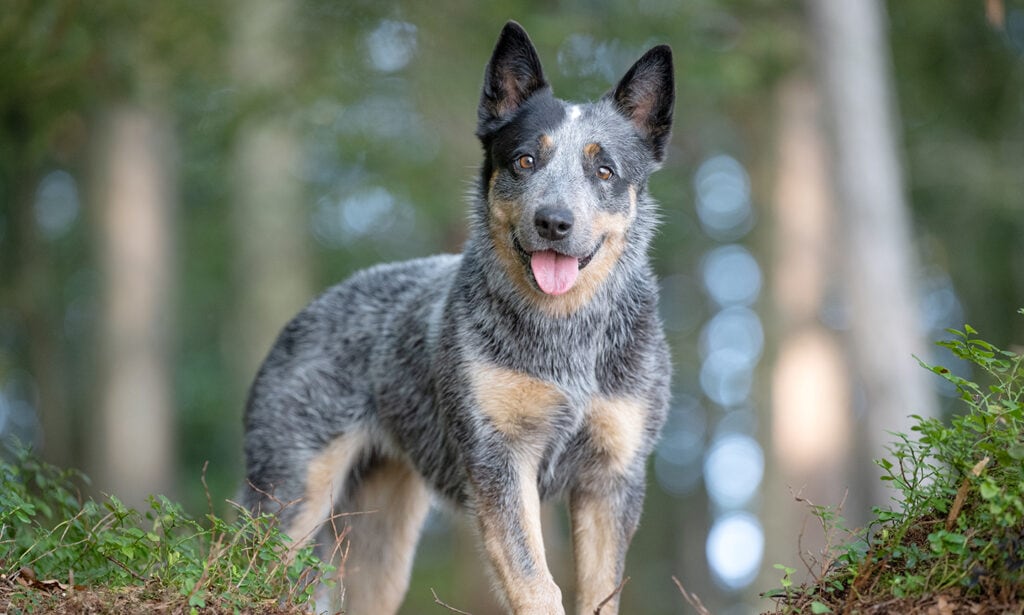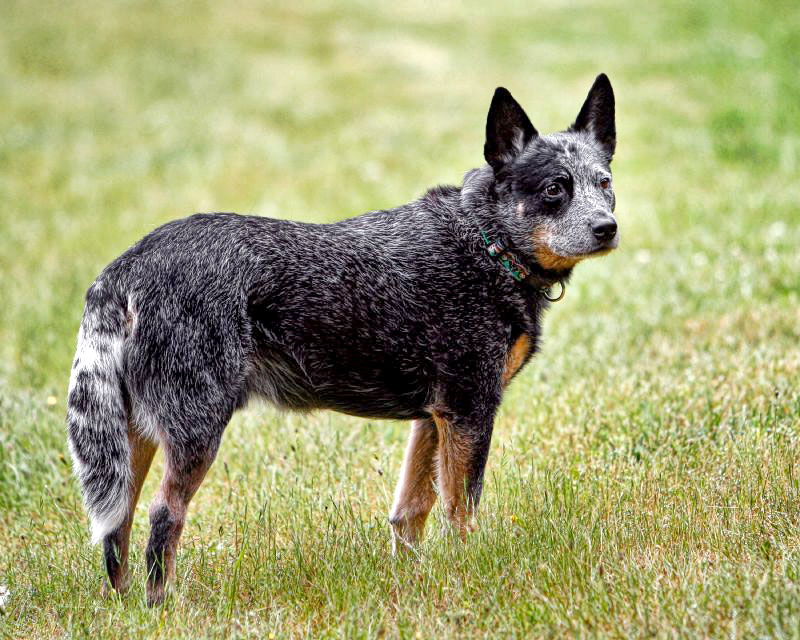Blue Heeler Lifespan: How to Extend Your Furry Friend’s Years in Style
The Blue Heeler, also known as the Australian Cattle Dog (ACD), is a breed renowned for its intelligence, agility, and loyalty. However, like all breeds, understanding the Blue Heeler lifespan is crucial for ensuring your furry friend enjoys a long and healthy life. On average, Blue Heelers live between 12 to 15 years, but with the right care and attention, you can help extend this period and ensure your dog lives each year to the fullest.
Understanding the Blue Heeler Lifespan
The Blue Heeler lifespan is influenced by a variety of factors, including genetics, diet, exercise, and overall health management. According to the American Kennel Club (AKC), the average lifespan of an Australian Cattle Dog is 12 to 15 years. However, some Blue Heelers have been known to live well into their late teens and even early twenties with proper care. This longevity is partly due to the breed’s robust health and resilience, but it also underscores the importance of proactive care.

Genetics and the Blue Heeler Lifespan
Genetics play a significant role in determining the Blue Heeler lifespan. Responsible breeders prioritize health clearances for conditions such as hip dysplasia, progressive retinal atrophy (PRA), and deafness. These clearances can help ensure that the puppies are less likely to develop hereditary conditions that could shorten their lives. As renowned veterinarian Dr. Karen Becker notes, “The health of a dog begins at conception, and responsible breeding practices are essential for a long and healthy life.” By choosing a reputable breeder who conducts these health screenings, you can significantly impact your Blue Heeler’s lifespan.

Diet and Nutrition for a Longer Blue Heeler Lifespan
A balanced and nutritious diet is paramount to extending the Blue Heeler lifespan. Blue Heelers are active dogs that require a diet rich in protein to support their muscular build and energy levels. According to the National Research Council of the National Academies, dogs need a diet that is approximately 25-30% protein. For Blue Heelers, this means opting for high-quality dog food that lists a named meat source (like chicken, beef, or lamb) as the first ingredient. Additionally, incorporating fresh fruits and vegetables can provide essential vitamins and minerals that support overall health. As dog nutrition expert Dr. Jerry Klein explains, “A well-balanced diet can prevent many common health issues and contribute to a longer, healthier life.”

Exercise and Mental Stimulation
Blue Heelers are known for their high energy levels and intelligence, making regular exercise and mental stimulation crucial for their well-being. A lack of physical activity can lead to obesity, which is a significant risk factor for various health issues that can shorten the Blue Heeler lifespan. The AKC recommends that Blue Heelers receive at least 60 minutes of vigorous exercise daily. This can include activities such as jogging, hiking, or agility training. Mental stimulation is equally important; Blue Heelers thrive on challenges and puzzles that keep their minds sharp. As dog behaviorist Cesar Millan emphasizes, “A tired dog is a happy dog, and a mentally stimulated dog is a healthy dog.”

Health Management and Regular Vet Visits
Regular veterinary check-ups are essential for maintaining the Blue Heeler lifespan. These visits allow veterinarians to monitor your dog’s health, detect potential issues early, and provide preventive care. According to the American Veterinary Medical Association (AVMA), routine vaccinations, parasite control, and dental care are all part of a comprehensive health management plan. Additionally, regular screenings for conditions common in Blue Heelers, such as hip dysplasia and eye diseases, can help ensure early intervention if needed. As Dr. Karen Becker advises, “Regular vet visits are like annual check-ups for humans; they help keep your dog in peak condition.”

Socialization and Training
Socialization and training are not just about behavior; they play a significant role in the overall health and Blue Heeler lifespan. Proper socialization helps your dog develop confidence and reduces the risk of anxiety and aggression. Training, especially obedience training, provides mental stimulation and reinforces the bond between you and your dog. According to the AKC, “A well-trained dog is a happier and healthier dog.” Training can also prevent behavioral issues that may lead to stress or health problems. As renowned dog trainer Victoria Stilwell notes, “Training is a gift you give your dog for life.”

Environmental Factors and Lifestyle
The environment in which your Blue Heeler lives can also impact its Blue Heeler lifespan. A safe, clean, and stimulating environment can contribute to your dog’s overall well-being. According to the Humane Society, providing a comfortable sleeping area, regular grooming, and a stress-free environment can all contribute to a longer life. Additionally, avoiding exposure to toxins and ensuring your dog has access to fresh water at all times are simple yet effective ways to support your Blue Heeler’s health. As Dr. Jerry Klein emphasizes, “A healthy lifestyle starts with a healthy environment.”

Common Health Issues and How to Prevent Them
While Blue Heelers are generally healthy dogs, they are prone to certain health issues that can impact their Blue Heeler lifespan. These include hip dysplasia, progressive retinal atrophy (PRA), and deafness. Hip dysplasia, a condition where the hip joint develops abnormally, can lead to arthritis and mobility issues. PRA is an inherited eye disease that can cause blindness. Deafness, particularly in blue-merle dogs, can also be a concern. Regular vet check-ups and genetic screenings can help detect these conditions early. As Dr. Karen Becker advises, “Early detection and management of health issues can significantly extend your dog’s life.”

The Role of Supplements and Natural Remedies
In addition to a balanced diet, supplements and natural remedies can play a role in extending the Blue Heeler lifespan. Omega-3 fatty acids, found in fish oil, can support heart health and reduce inflammation. Glucosamine and chondroitin supplements can help maintain joint health, particularly important for active breeds like Blue Heelers. Probiotics can support digestive health, and antioxidants can help combat oxidative stress. As holistic veterinarian Dr. Barbara Royal explains, “Natural remedies and supplements can complement a healthy diet and support overall well-being.”

The Emotional Bond and Its Impact on Lifespan
The emotional bond between you and your Blue Heeler can also impact its Blue Heeler lifespan. Dogs are social animals that thrive on companionship and affection. A strong bond can reduce stress and anxiety, both of which can negatively affect health. According to a study published in the Journal of Veterinary Behavior, dogs that receive regular affection and attention from their owners tend to live longer and healthier lives. As Cesar Millan notes, “The emotional connection you have with your dog is a powerful factor in its overall health and longevity.”

Final Thoughts on Extending Your Blue Heeler’s Lifespan
Extending the Blue Heeler lifespan requires a holistic approach that includes genetics, diet, exercise, health management, socialization, and emotional bonding. By prioritizing these aspects, you can help ensure your Blue Heeler enjoys a long, healthy, and fulfilling life. As Dr. Jerry Klein concludes, “A combination of good genetics, proper care, and a loving environment can significantly extend your dog’s lifespan.”

